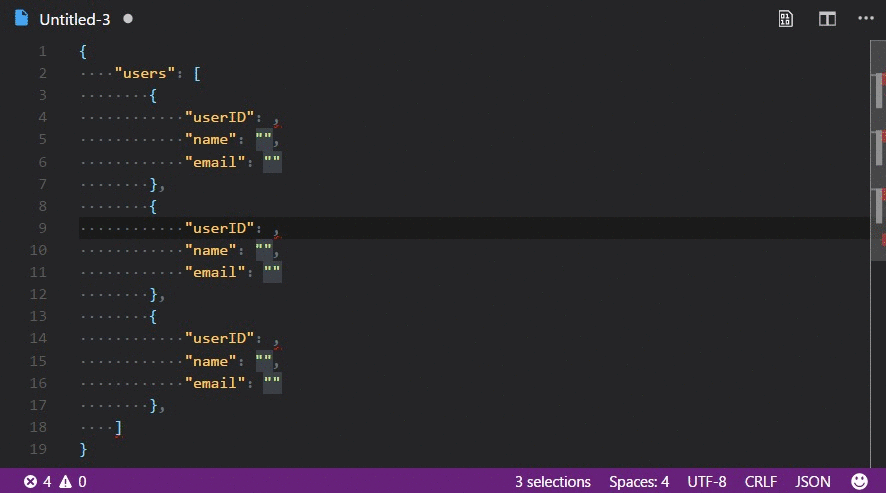Background
A VSCode extension that uses Chance.JS to generate random data types.
Concerns
- My main concern is that there are 4 levels of function references that feels like a hack. From registerCommand → insertFunc* → randomFunc* → processSelection.
- If the code is sensible TypeScript/JavaScript
The Code
export function activate(context: vscode.ExtensionContext) {
context.subscriptions.push(vscode.commands.registerCommand('randomeverything.int', insertRandomInt));
context.subscriptions.push(vscode.commands.registerCommand('randomeverything.letters', insertRandomLetters));
context.subscriptions.push(vscode.commands.registerCommand('randomeverything.lettersAndNumbers', insertRandomLettersAndNumbers));
context.subscriptions.push(vscode.commands.registerCommand('randomeverything.iPv4Address', insertRandomIPv4Address));
context.subscriptions.push(vscode.commands.registerCommand('randomeverything.iPV6Address', insertRandomIPV6Address));
/* More commands... */
}
function insertRandomInt(): void {
var max:number;
var min:number;
Window.showInputBox({prompt: "Please enter [MIN-MAX]", value:"1-100"}).then(
function(txt){
if(txt){
var args = txt.split("-");
min = Number.parseInt(args[0]);
max = Number.parseInt(args[1]);
if(args.length != 2 || isNaN(min) || isNaN(max))
{
Window.showErrorMessage("Invalid format.");
return;
}
processSelection(randomIntString, [min, max]);
}
});
}
function insertRandomLetters(): void {
processSelection(randomLetters, []);
}
function insertRandomLettersAndNumbers(): void {
processSelection(randomLettersAndNumbers, []);
}
function insertRandomIPv4Address(): void {
processSelection(randomIP, ['ipv4']);
}
function insertRandomIPV6Address(): void {
processSelection(randomIP, ['ipv6']);
}
/* More inserters... */
/**
* Chance.js Wrappers
*/
function randomIntString(min, max): string {
var chance = require('chance').Chance();
var randomVar: Number = chance.integer({
min: min,
max: max
});
return randomVar.toString();
}
function randomIP(option?:string): string{
var chance = require('chance').Chance();
var randomVar:string;
switch (option) {
default:
case 'ipv4':
randomVar = chance.ip();
break;
case 'ipv6':
randomVar = chance.ipv6();
break;
}
return randomVar;
}
/* More wrappers... */
function processSelection(formatCB, argsCB) {
let e = Window.activeTextEditor;
let d = e.document;
let sel = e.selections;
e.edit(function (edit) {
// iterate through the selections
for (var x = 0; x < sel.length; x++) {
let txt: string = d.getText(new Range(sel[x].start, sel[x].end));
if (argsCB.length > 0) {
txt = formatCB.apply(this, argsCB);
} else {
txt = formatCB();
}
//insert the txt in the start of the current selection
edit.insert(sel[x].start, txt);
}
});
}

